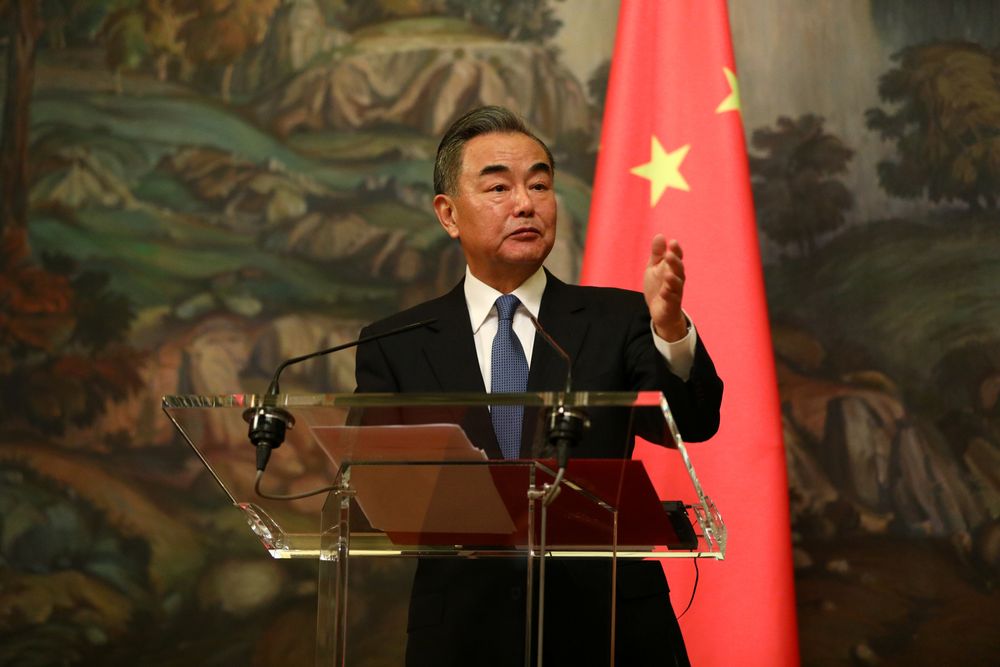
Wang Yi: Seven years ago after my first trip to the Middle East as China’s Foreign Minister, I gave an interview to an Arab media outlet. I recall that toward the end of the interview,I was asked whether China would play a bigger role in the region. I replied that China would be happy to respond to the wishes of Middle East countries and that China’s role in the region would only be enhanced, not diminished.
Seven years later, as I visit the Middle East and give another interview to an Arab media, it sets me reflecting on the past seven years. For China, it has been seven years of remarkable development achievements, of all-round progress in relations with Middle East countries, and of a more active role in Middle East affairs.
For the Middle East countries, the past seven years have seen them stand up to difficulties and challenges, strive for stability and peace, and explore paths for their own development. We salute their hard work.
My coming back to this region of rich history and great civilizations coincides with quite a few anniversaries: the 10th anniversary of the Arab Spring, the 20th anniversary of 9/11, the 30th anniversary of the Madrid Peace Conference, and the 40th anniversary of the Gulf Cooperation Council (GCC). History keeps moving forward, and the situation in the Middle East has experienced ups and downs. Yet countries in the region have never ceased their pursuit for peace and security, or their quest for development and prosperity. Today, they are exploring a new path of development and governance, and are working to advance the Middle East peace process and promote cooperation in the Persian Gulf.
For China, this year marks the 50th anniversary of the restoration of its UN seat and the 20th anniversary of its accession to the WTO. China has become a staunch defender, builder and contributor to the current international order. We have established diplomatic relations with all the countries in the Middle East, and elevated our relations with 13 Middle East countries to strategic partnerships. China is now the biggest trading partner and a major investor in the Middle East. Looking ahead, China’s relations and cooperation with countries in the Middle East will enjoy even greater prospects.
Question: Since taking office, the Biden administration has indicated an intention to adjust its Middle East policy, triggering new changes in the regional situation and hotspot issues. The Iranian nuclear issue may return to the framework of the JCPOA. New developments are unfolding in Yemen, Syria, Palestine, Libya and other flare-ups. How would you characterize China’s current Middle East policy?
Wang Yi: The Middle East was a highland of brilliant civilizations in human history. Yet,due to protracted conflicts and turmoil in the more recent history, the region descended into a security lowland. After all, the Middle East belongs to the people of the region. For the region to emerge from chaos and enjoy stability, it must break free from the shadows of big-power geopolitical rivalry and independently explore development paths suited to its regional realities. It must stay impervious to external pressure and interference, and follow an inclusive and reconciliatory approach to build a security architecture that accommodates the legitimate concerns of all sides.
The world cannot enjoy real tranquility if the Middle East keeps suffering from instability. The international community should neither overstep its responsibility nor simply sit by and look on. The right thing to do is to fully respect the will of regional countries and contribute to stability and peace in the Middle East.
As we speak, COVID-19 is still spreading in the region, turbulence persists, and hotspot issues are evolving amid twists and turns. The region is again at a crossroads. Against this backdrop, China wishes to propose a five-point initiative on achieving security and stability in the Middle East:
First, advocating mutual respect. The Middle East is home to unique civilizations which have cultivated unique social and political systems. The characteristics, models and paths of the Middle East must be respected. It is important to change the traditional mindset and see Middle East countries as partners for cooperation, development and peace, instead of perceiving the region through the lens of geo-competition. It is important to support Middle East countries in exploring their own paths of development, and support regional countries and their peoples in playing a major role in pursuing political settlement of such regional hotspot issues as Syria, Yemen and Libya. It is important to promote dialogue and exchanges among civilizations to achieve peaceful coexistence of all ethnicities in the Middle East. China will continue to play its constructive role to this end.
FMPRC for more